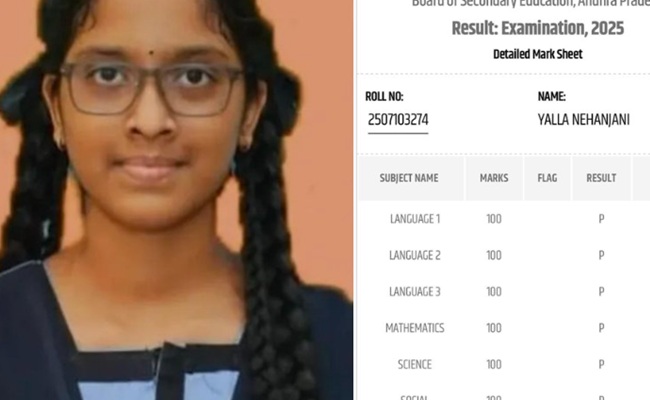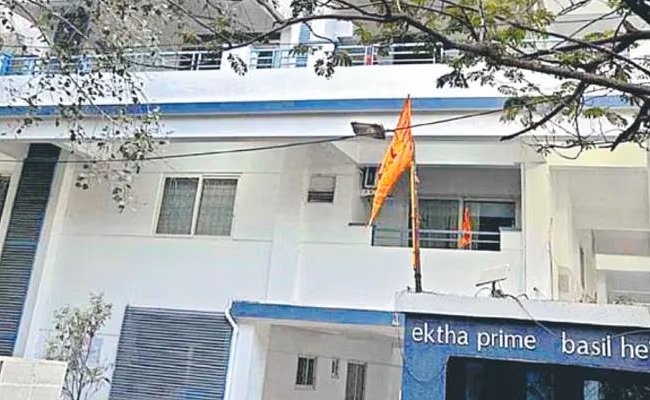
Film folk, especially those in the Hindi film industry, have always protested and decried decisions taken by the authorities at the central, state or local levels, but never picked a fight. It just suffers like an old-fashioned bahu or a widow. A line from a song can put in its true perspective: "Uthaye ja unke sitam, aur jiye ja...".
The essence of the problem lies in the fact that the Hindi film industry has no unity. Imagine, the filmmakers in western India alone have as many as four producers' associations to safeguard their members' interests. Now, why do you need four associations? No explanation, so no sense talking about it.
This anomaly of having four associations can be tackled if, at least, one of the four had a strong leader. But that, unfortunately, has never happened. And, if ever, the members of a particular association choose someone they thought would prove to be a strong leader, he has betrayed them.
Here, the betrayal of the members by a leader has been the norm. And when one talks of a leader, he is an association leader usually because he is a person with a successful track record who is held in high esteem.
How can you expect members of a filmmakers' association to be united when each association has its own Manuvaad (caste system)? For example, there is the Film & Television Producers' Guild of India, which is kind of meant only for the elite of the industry. Only the nabobs of the fraternity are allowed in and that too by invitation. You just can't go and enroll yourself in it because you make or aspire to make films!
Then there is the parent association, Indian Motion Pictures Producers Association (IMPPA), from where the other associations sprang out over a period. IMPPA was established in 1937. Some of its members, feeling more equal than others, decided to branch out and form their own elite body, the Film & Television Producers Guild (simply known as the Guild).
The names of the members read like the Who's Who of the filmmaking business. Normally, if you enter any enterprise, you want to become a member of your respective business association to feel safe and be a part of the industry. That is how it worked in the IMPPA. But with the Guild, it is different. You have to prove yourself to be as equal as those who are more equal which, in other words, means hugely successful.
Then there were some who thought that the Guild was too elite and they had no say in it, while the IMPPA was too downmarket for them. So, they formed another association, Association of Motion Pictures & TV Programme Producers (AMPTPP), which has since been renamed Indian Film & Television Producers Council (IFTPC).
And, of course, there was one more: the Western India Film Producers Association (WIFPA), a poor man's refuge. Its membership consists mainly of newcomer producers, ex-producers and regional film makers, its USP being cheaper membership fees!
Now, how can one expect unity in an industry that is so divided? The film industry has this peculiarity. Nobody wishes another filmmaker's film to be a success. So, when a producer releases his new film on a particular Friday, the rest of his fraternity wishes that his film flops.
And if it flops, some even celebrate! That is something which has remained a constant even with the changing generations.
Who leads these associations and how is he chosen, because he is not elected? At IMPPA, the one with money power is the chosen one. Throw a couple of open-to-all cocktail parties, pay up membership fees for the defunct or defaulting filmmakers, and there you are.
The latest such example was IMPPA's immediate past president, T.P. Agarwal. He was running a few educational institutions in Delhi and then he was obviously glamour struck, so he made a few irrelevant films and led the association for as many as 16 years (2006 to 2022)! At the Guild, the leadership is by rotation and every big-time maker gets his turn.
Then there is the WIFPA, where the earlier president was Gajanan Shirke, a Shiv Sena leader whose film production credits started and ended with one or two Marathi films. After his demise, his son, Sangram Shirke, inherited the presidency.
What has happened is that because there is no unity, there is no unified lobbying effort by the industry. Let alone unity, there is no fighting spirit either. No wonder, this industry did not count for much to any government, not even at the Centre. They just followed the rules, arbitrary as they may be, and paid multiple taxes and renewed numerous licenses. Film exhibition being a state subject, the laws and taxes varied from state to state, but the suffering of the people in the trade did not.
Many times, the filmmakers' bodies decided not to cooperate or participate in government events. There were occasions when the producers' bodies resolved to stop dealing with certain circuit distributors because of their high-handed business practices. Who let the film industry and association members down the most? Its leaders, mainly the prominent film personalities.
There was some issue with the Centre and the industry decided not to participate in one of the important events due in Delhi (I think it was the National Awards) where the film folk are invited as props though they have no say. But, next evening, at the event, one sees the stalwart of the industry and a leader, G P Sippy, all there solely representing his people!
Once the filmmakers decided on an embargo on the Delhi-UP circuit for a number of reasons. No films were offered for release in these parts. In those days, films did not release simultaneously all over the country like they do now.
Veteran and much respected producer-director B.R. Chopra's film 'Karm' was released all over, except in Delhi and UP, and failed miserably. The Delhi-UP distributor would never have honoured his commitment for a flop film.
The Chopra banner therefore broke the film folk's resolve and delivered the film to the distributor, who wished to take advantage of the embargo and cash in on 'Karm'.
IMPPA was the producers' association that mattered since it had on its roster the highest number of active producers. Sreeram Bohra was the president of this body and under him, the trade magazine, 'Trade Guide', was banned because of its frank stand and bold reviews. The ban lasted for some months and, for a trade magazine, surviving on the business and subscribers and advertisers from the film industry alone, it was getting tough to survive.
Guess what? Bohra produced a costly period drama, 'Thief of Baghdad', and needed to promote it with the distributors and exhibitors, something that needed a trade paper to do. So, the ban imposed by him and his members on 'Trade Guide' was forgotten and a coloured cover page ad issued!
This association business was odd, because whether a producers' association banned a distributor or the distributors' association banned a producer (often for flimsy reasons, for they knew that a producer had no holding power), it was the producer who suffered. It was his film that was at stake!
This issue has gained currency recently because a 2015 link of a Mukesh Bhatt interview has surfaced on social media. In this interview to a prominent newspaper, Bhatt laments how a producer is forced to shell out huge sums per day of shooting for the star's retinue. Rs 1 lakh for the makeup man and the rest for the star's driver, dress man, Man Friday and so on! He added up the total of such exploitative charges to more than Rs 2 crore per film (and that was in 2015)!
Now, it is strange for Bhatt to complain about this extortion because when he gave this interview he was the President of the Film Producers Guild (2012-16). So, why did he not do something about this? Who will bell the cat? Even the president of a powerful association would not dare!
Then these associations are dominated by one individual for a long time. Sreeram Bohra ruled IMPPA for more than 11 years. Sajid Nadiadwala is the head of IFTPC for eight years now. And the most curious case is that of the WIFPA. Sangram Shirke has been heading it for 22 years! This puts even a political party hierarchy to shame. The associations are more disgruntled about each other than with the government.
Now, one job left with the producers associations is to register film titles so that there is no duplication nor disputes. The whole thing about this association business is that nobody takes them seriously, including their members, least of all, the distributors or the exhibitors. Because, in any dispute, if someone is going to suffer, it is the producer.
The leaders went and did what suited them, the associations be damned. These bodies had no standing in the past and little, if any, now. All shots are called by people other than the filmmakers.













